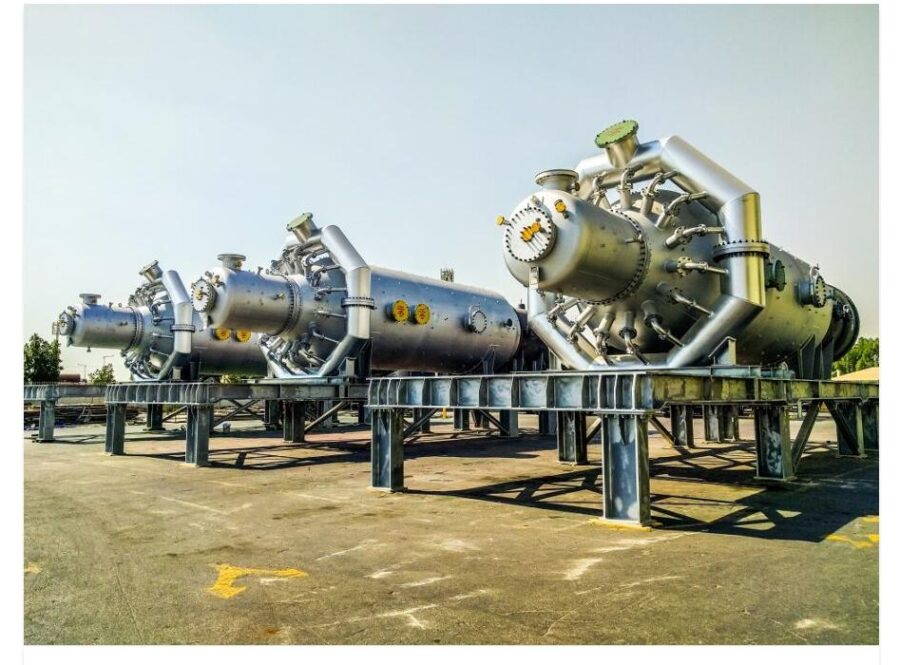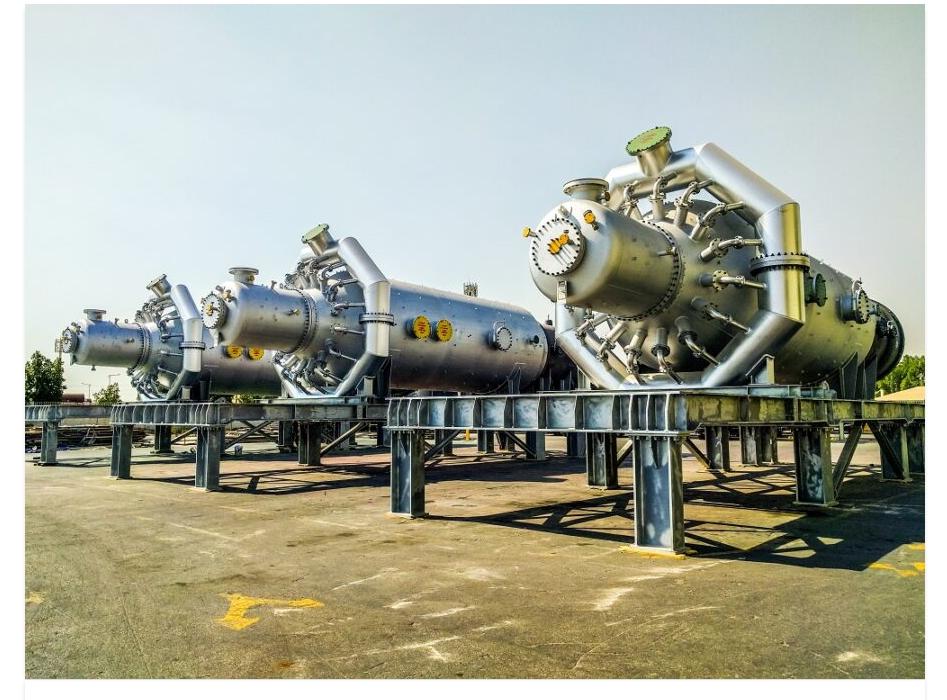
What are the Different Types of Pressure Vessels and Their Applications?

Pressure vessels are essential for use in situations where vapors, liquids, and gases need to be held at significantly lower or higher temperatures than the ambient pressure. At Forged Components, we are the leading pressure vessel connection manufacturers. We want to tell you more about the types of pressure vessels and their various applications.
The Shapes and Orientation of Pressure Vessels
There are a variety of shapes that pressure vessels can take on, but the most common ones are:
- Cylinders
- Spheres
- And cones
Of these, cylinder-shaped pressure vessels are the most common. The end caps of cylinder-shaped pressure vessels are known as heads. The aspherical shape is ideal for pressure vessels, but these are more expensive to manufacture. The cylinder variety of pressure vessels is cheaper to manufacture and highly versatile.
Cylindrical pressure vessels can be oriented vertically or horizontally.
- The vertical orientation is utilized when there is limited floor space, and the volume of the vessel is small. This orientation is also used in mixing tanks and has a high gas to liquid ratio.
- The horizontal vessel orientation is used in heat exchangers and flash drums. It is also used in settling tanks.
The Various Pressure Vessel Types
The types of pressure vessels include:
- Storage vessels
- Heat exchangers
- Process vessels
The Applications of Pressure Vessels
Regarding the applications for pressure vessels use, storage vessels are used for many different industrial processes. This includes the storing of liquids.
- Heat exchangers are used in processes involving both heating and cooling. They are used for the transfer of heat between two or more fluids.
- Process vessels are the most versatile variety of pressure vessels. They are used in virtually all industries and are commonly utilized in combination with the other two vessel types.
Material Selection for Pressure Vessels
Stainless Steel
Stainless steel is a common type of steel notable for its higher chromium content. This can be as much as 10.5 to 30% and lower carbon content. It includes trace amounts of nickel. This type of steel is known to have excellent resistance to weathering and chemical corrosion. Like carbon steel, stainless steel has a high level of strength that is ideal for lower wall thickness. This material is easier to form when compared to its carbon steel counterpart. This is because it has more excellent elasticity and flexibility.
Carbon Steel
Carbon steel is notable for having a higher carbon content. This can be up to 2.5 percent. Vessels made from carbon steel are known for exhibiting a higher tensile strength ideal for minimal wall thickness. It is a suitable material for a wide range of applications. Carbon steel is known to be hard to bend and form. This is because of its excellent strength. It is more susceptible to issues such as rusting and corrosion than its stainless steel counterpart. This is due to it not containing any chromium.
Nickel Alloys
Nickel alloys are excellent materials due to their resistance to weathering and corrosion. They also protect against thermal expansion. Adding chromium to nickel adds additional resistance to heat. Vessels made from nickel alloys are used heavily in today’s oil and gas industry, cryogenic applications, and other harsh environments.
Aluminum
Aluminum is an excellent material for pressure vessels due to its strength. It has superior tensile strength that ranges from 70 to 700 MPa. It is also a much cheaper material to purchase than many other options. Due to this fact, aluminum pressure vessels are highly cost-effective for companies running on a tight budget. It is a material that possesses a coefficient expansion that is slightly high when compared with a lot of the other alternatives.
Titanium
Multiple properties make titanium a great material for pressure vessels. It is corrosion-resistant and perfect for use with harsh liquids such as acids. Titanium is also easy when it comes to maintenance concerns. It is easy to clean and takes less time and money to maintain.
Find Out More About Custom ASME Pressure Vessel Fabrication
As the industry leading ASME pressure vessel connections manufacturer, our team at Forged Components is ready to provide you with consultation on our manufactured forged products. Please reach out to our sales team today at (281) 441-4088 or contact us online to get a quote. We look forward to providing you with the answers to any of your questions and/or inquiries.
